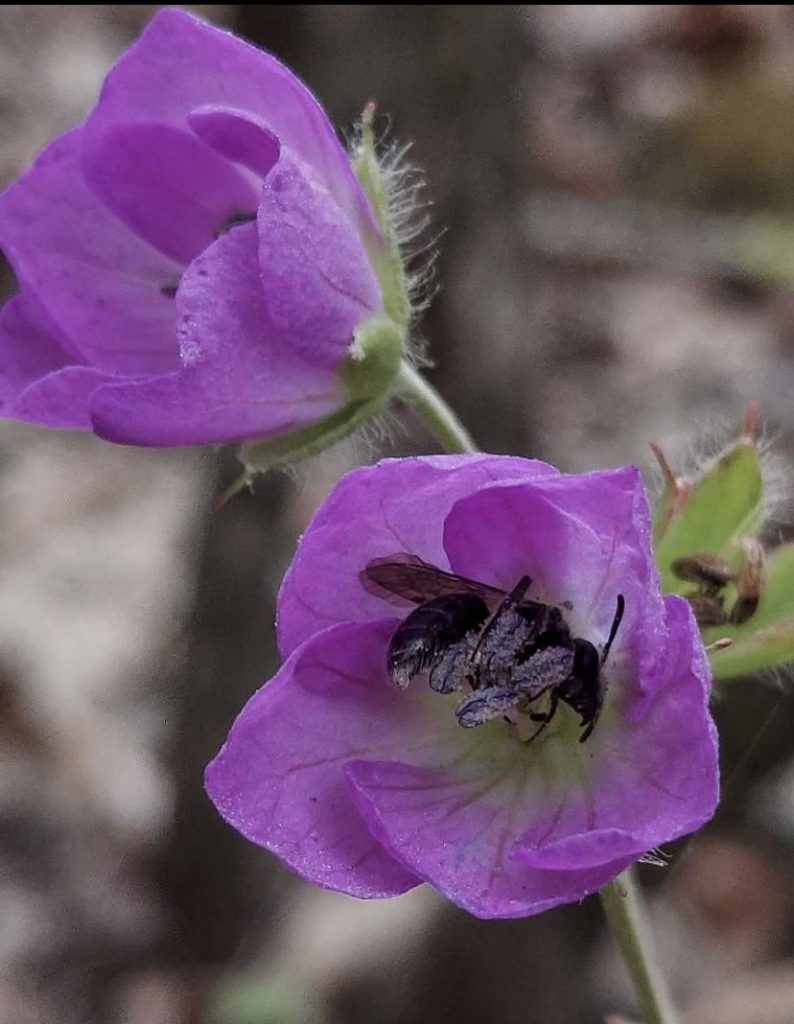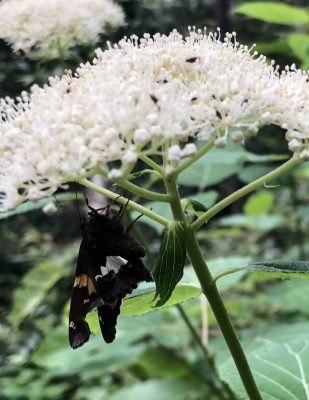Celebrate Special Critters During Pollinator Month

By Abby Williams, Conserving Carolina Americorps natural resources educator.
Pollinators are vital to the reproduction and survival of plants.
They carry pollen on their bodies from one plant to another, which ultimately leads to the growth of seeds, fruits and young plants. June is a month dedicated to the celebration of these special critters that are crucial to our way of life.
Bees, which are the most commonly known pollinator, are responsible for pollinating over 80% of insect pollinated crops consumed by humans. Their fuzzy bodies are designed to carry pollen over long distances. Bees, however, are not the only creatures that assist in pollination.
Birds, bats, butterflies, beetles, flies and several other species are responsible for feeding on and transporting pollen from plant to plant. Pollinators most notably help support the vitality of flowers and crops, but also help encourage diverse and healthy ecosystems. Their actions lead to reduced soil erosion and carbon dioxide pollution.
Their work provides a service to wildlife as well.

It is crucial to support our pollinators because they are increasingly threatened by reduced habitats and feeding resources. There are many things each individual can do to support these pollinators, such as providing them with food and housing. Pollinator gardens can be a great resource for these important critters.
Even if you do not have the space for an extensive garden, just a few native plants can draw pollinators in. Bees, in particular, seem unfazed by the chaos of cities and can still find patches of gardens amongst the concrete. Some plants are more beneficial than others when you consider helping our hard-working friends. Purple coneflower, common milkweed and goldenrod are just a few examples.
A vibrant garden and pollinators tend to go hand in hand. It is important to plant species that are native to your area, and there are a few here in Western North Carolina.
Adding in pollinator habitats near farms has shown a direct positive impact on crop yield. Many farms have utilized pollinator gardens to promote pollination in their fields. By helping our pollinators, we gain much more in return. We need them far more than they need us.
You should support our local farmers and beekeepers as much as possible. At home, bee houses can be a great way to provide a nesting site for bees, while adding a cute decoration to your garden. Make sure you clean them out each year.
Be gentle with our pollinating critters this summer. We may find that some cause us minor annoyance, but ultimately, they are providing a service that deserves to be repaid.
If you would like to learn about more pollinator friendly native species, check out our list here.
If you are interested in learning more about the role pollinators play in farming, there are great resources provided by the N.C. Cooperative Extension. Please reach out to me if you have any questions at [email protected].